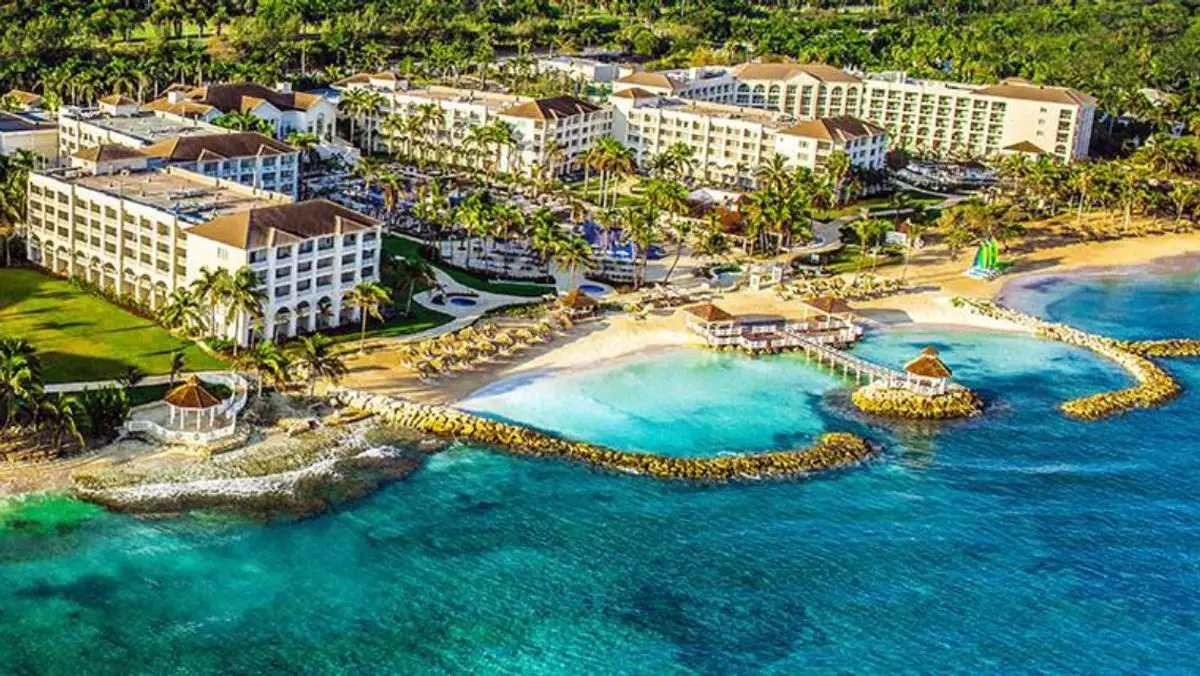The hospitality industry is witnessing a notable shift, with Hyatt Hotels Corporation stepping into a broader dominance in the all-inclusive sector. The recent announcement of Hyatt’s intention to acquire Playa Hotels & Resorts for a staggering $2.6 billion is not only indicative of the brand’s ambition but also raises pertinent questions regarding its capacity for sustained growth. This article delves into the implications of this acquisition strategy in the context of Hyatt’s overall expansion goals and the challenges it may face moving forward.
Hyatt’s acquisition plan, aimed at integrating 24 properties from Playa into its existing portfolio of over 120 all-inclusive resorts, marks a significant escalation in the company’s strategy. This transaction represents more than just the addition of physical spaces; it signals a potential overhaul of operational dynamics within Hyatt’s all-inclusive offerings. Analysts like Patrick Scholes at Truist Securities point out that this acquisition could allow Hyatt to solidify management agreements with its Hyatt Ziva and Hyatt Zilara properties that were previously managed by Playa, ultimately granting Hyatt more control over these key brands.
While the opportunity for greater operational control is enticing, one cannot dismiss the inherent risks associated with such rapid acquisitions. The sheer scale of integrating a substantial number of new properties can strain resources and lead to inconsistencies in service quality if not managed adeptly. Insufficient attention to these operational challenges could muddle the promising nature of this expansion.
Hyatt’s expectation to sell Playa’s owned real estate, with projections of generating $2 billion by 2027, could serve as a financial buffer against overexposure risks. However, the reliance on the continued management contracts for these properties is a double-edged sword. Scholes suggests that while Hyatt will benefit from streamlined operations and potential revenue through management and franchise fees, the success of these plans hinges on the market’s response and the company’s ability to execute these transitions smoothly.
Furthermore, Hyatt’s existing financial clout contrasts sharply with Playa’s historical challenges in asset sales, positing Hyatt in a more favorable position to maximize revenues from property divestments. However, this optimistic outlook assumes a steady demand for the hospitality market and a favorable economic climate, both of which remain unpredictable.
One of the more intriguing facets of this acquisition is the prospect of simplifying the fragmented booking processes that have long perplexed travel advisors. The integration of Playa’s portfolio with Hyatt’s ALG Vacations is likely to facilitate a more cohesive and less convoluted booking experience, as highlighted by Abbey Meyer, CEO of Altitude Travel. But, as experience within the travel industry suggests, operational efficiencies borne from mergers can sometimes take considerable time to realize.
A streamlined booking process promises to enhance customer satisfaction and operational efficiency but creates a dependency on internal training and adaptation by travel advisors. If Hyatt can effectively manage these training initiatives, this heavy lifting may result in increased bookings. The anticipation of a seamless booking experience stands in stark contrast to the reality that integration often comes with transitional hiccups.
Hyatt’s aggressive strategy in the all-inclusive market is not an isolated endeavor; it follows hot on the heels of their last major acquisition of Apple Leisure Group for $2.7 billion in 2021 and a collaboration with Grupo Pinero in early 2024. These concerted efforts to grow in a competitive landscape not only show Hyatt’s ambition but also pose questions about their long-term strategy and sustainability in the all-inclusive sector.
As indicated by industry observers such as Meyer, there exists a palpable concern about whether Hyatt is expanding at a pace that could lead to overextension. The balance between seizing growth opportunities and maintaining service quality is delicate. If Hyatt can successfully navigate this challenging terrain, it may well solidify its stature as a leader within the all-inclusive sector. However, failure to maintain quality could lead to dissatisfied customers and potential fallout on its carefully curated reputation—something Hyatt has built over decades.
As Hyatt embarks on this ambitious journey to redefine its all-inclusive offerings, it must maintain an unwavering focus on the brand promise that resonates with its loyal customer base. Integrating new properties and operational processes effectively, while ensuring that high service standards are met, will be paramount.
While the acquisition of Playa Hotels & Resorts enhances Hyatt’s growth trajectory and market leadership in the all-inclusive industry, the company must navigate the complexities of expansion with strategic finesse. The road ahead will undoubtedly be fraught with challenges, but if Hyatt can harness its resources effectively, it stands poised to not only thrive but also redefine the all-inclusive luxury experience for travelers worldwide.

